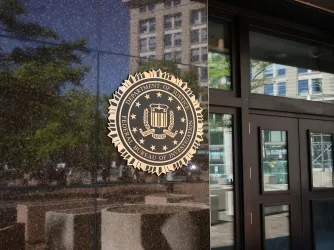Table of Contents
Did PayPal quietly bring back its financial penalty for spreading ‘misinformation’?

Ink Drop / Shutterstock.com
Some are now claiming PayPal quietly implemented the “misinformation” ban, but it’s still nowhere to be found in the acceptable use policy.
All eyes remain on PayPal, and with good reason, after the company notified users last month it was adding a slew of new categories of prohibited speech, including any content or materials that “promote misinformation.”
After significant backlash, PayPal claimed notice of the policy changes went out “in error,” but just a few short weeks later many critics are saying the company quietly went ahead with the controversial misinformation ban anyway, complaining that PayPal may fine users $2,500 for violating the policy. Is this true?
The first thing to understand is there are two documents at play: PayPal’s acceptable use policy and its user agreement. The controversy that began a few weeks ago involved PayPal’s proposed changes to the AUP, not the user agreement. As FIRE explained at the time:
The new policy dramatically expands PayPal’s power to take action against users for activity on the service involving disfavored speech. That includes “any messages, content, or materials that, in PayPal’s sole discretion” are “harmful” or “objectionable,” depict or even appear to depict nudity, “depict, promote, or incite hatred or discrimination of protected groups,” present a risk to a user’s “wellbeing,” “promote misinformation,” or are, in PayPal’s opinion, “otherwise unfit for publication.”
The AUP already had — and still has — a provision that allows the company to charge users $2,500 in liquidated damages per policy violation. That provision would have applied to the new speech restrictions, had PayPal not walked them back in the face of widespread criticism.
The vagueness of PayPal’s restrictions — along with its proposed adoption and subsequent retraction of even more restrictions — undoubtedly chills users’ speech.
But this week, the internet was abuzz with rumors that the “$2500 fine for misinformation” is back. PayPal’s AUP, however, still does not include “provide misinformation” in its list of prohibited activities, and there is no indication PayPal made any changes to its policies since its retraction two weeks ago.
What critics are calling a revived misinformation ban is actually a pre-existing provision in PayPal’s user agreement that says users may not “[p]rovide false, inaccurate or misleading information” in connection with their use of PayPal services or in their “interactions with PayPal, other PayPal customers, or third parties.” This provision predates the controversy over the proposed changes to the other policy, i.e., the AUP, and differs from the proposed ban on “promot[ing] misinformation” that PayPal decided not to implement in its AUP.
It’s also possible that the user agreement provision is intended only to ban fraudulent activity on the service as opposed to banning “misinformation” more broadly, but PayPal would do well to revise the agreement to make that clear. The vagueness of PayPal’s restrictions — along with its proposed adoption and subsequent retraction of even more restrictions — undoubtedly chills users’ speech.
The upshot is that PayPal has not brought back the much-criticized “misinformation” ban.
As for the $2,500 damages provision, both the AUP and the user agreement indicate it is applicable only to violations of the AUP. So, even if a user violates the user agreement’s ban on “false, inaccurate or misleading information,” it would not appear to trigger the damages provision unless PayPal also determines the user violated the AUP. Nevertheless, PayPal may still take other action against the user such as suspending or terminating their account.
The upshot is that PayPal has not brought back the much-criticized “misinformation” ban, but its current policies — which include vague speech restrictions that are subject to the $2,500 liquidated damages provision, including “certain sexually oriented materials or services” and “promotion of hate, violence, racial or other forms of intolerance that is discriminatory or the financial exploitation of a crime” — still leave lots of room for improvement.
FIRE will continue to monitor PayPal’s next moves.
In the digital age, certain free speech concepts can get a little confusing. What is misinformation vs. disinformation? Is one worse than the other? Why is everyone talking about Section 230, social media, and free speech laws? Why does Congress want to ban TikTok? Learn about this and more in FIRE’s extensive library of First Amendment resources.
Recent Articles
Get the latest free speech news and analysis from FIRE.

VICTORY: Court vindicates professor investigated for parodying university’s ‘land acknowledgment’ on syllabus

Can the government ban controversial public holiday displays?

DOJ plan to target ‘domestic terrorists’ risks chilling speech


